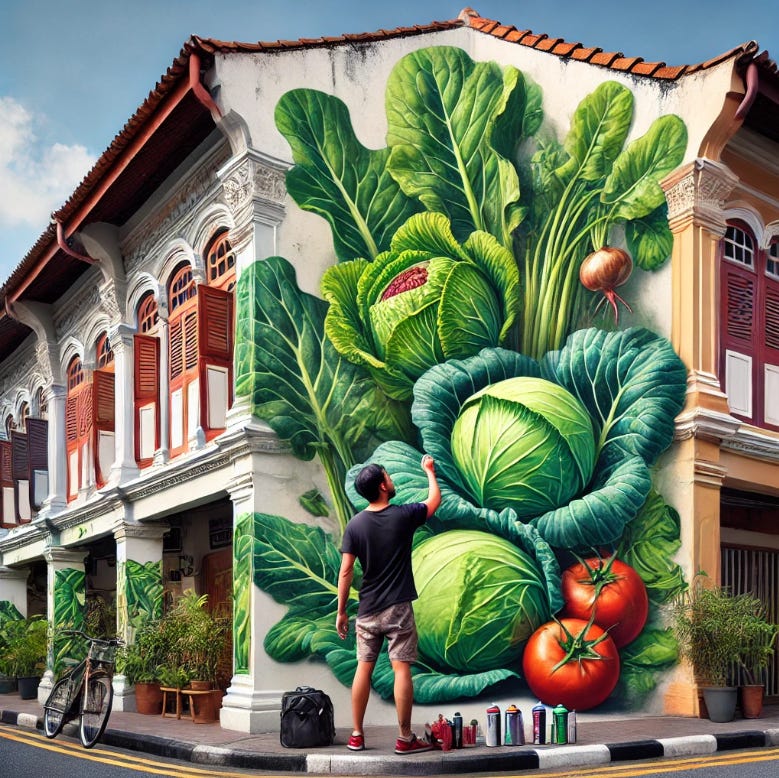Rojak #83: Cabbages and Kangkongs
Exploring Food, Heritage, and Survival: The Challenges We Face
Welcome to The Rojak, the monthly newsletter where I unpack some of the stories that made it across my desk but didn’t quite make it into my regular Southeast Asian newsletters. As the name suggests, Rojak is an exotic mix, and this edition is no different.
Cabbages and Kangkongs—they’re more than just ingredients on a plate; this month, they serve as a lens into the many environmental and societal challenges affecting communities across Asia and beyond. From the fields of South Korea, where climate change threatens the future of napa cabbage—and by extension, kimchi—to the farms of Thailand, where the Karen people are fighting to keep their traditional agricultural methods alive, food security and sustainability are at the heart of these stories.
Even in academia, the “Professor Kangkong” debate highlights how intellectual rigor and nourishment—both of the mind and body—are at risk in a world where shortcuts and superficiality often reign. The theme of scarcity runs deep, from poaching driven by hunger in East Africa to the erosion of cultural landscapes, where the survival of traditions hangs in the balance.
As always, these stories connect in unexpected ways. If you’re hungry for a deeper dive, read on and explore how communities, heritage, and even food itself are being shaped by the pressures of modern life. From disappearing kelongs in Singapore to the battle for land rights in Malaysia, and even a rather unusual exhibition where ancient history meets furry companions, this edition offers a diverse mix of tales. The threads of survival, adaptation, and resilience weave through each one, providing plenty of food for thought.
A reminder: The Rojak is an exclusive newsletter for my supporters. You can become a supporter by Buying Me a Coffee. Your contributions help maintain the website and sustain these efforts, but rest assured, the weekly Southeast Asian Archaeology newsletter will always remain free.
Lettuce begin!
Singapore's kelongs disappearing fast: One of Singapore's last kelongs, owned by Timothy Ng, may close by the end of 2024 unless heritage activists succeed in preserving it. The Singapore Heritage Society is working to fund a feasibility study to save the kelong, potentially transforming it into an educational and community space. Kelongs were once vital to Singapore’s fishing industry, and this effort seeks to preserve their cultural significance before they disappear entirely.
Museum welcomes furry guests: Shanghai Museum's "The Top Of The Pyramids" exhibition, featuring ancient Egyptian cat relics, has introduced "Meow Night," where visitors can bring their cats. Inspired by the Egyptian goddess Bastet, up to 200 cats can visit the exhibit on select Saturdays, with designated areas for feline interaction. The event, which highlights cats' historical connections to ancient Egypt, has been a hit with visitors and their furry companions.
Keep reading with a 7-day free trial
Subscribe to Southeast Asian Archaeology to keep reading this post and get 7 days of free access to the full post archives.





